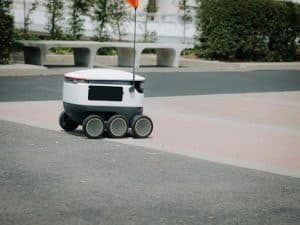Work-Life Balance for Educators in a Hybrid World
As the education system adapts to a hybrid world, educators are faced with new challenges in maintaining a healthy work-life balance. With the blurring lines between personal and professional responsibilities, it can be challenging to separate the two and find time for self-care. However, with the right strategies and mindset, educators can achieve a sustainable work-life balance in this new normal. In this article, we will explore the importance of work-life balance for educators in a hybrid world and provide tips on how to achieve it.
Why Work-Life Balance Matters for Educators
In today’s fast-paced world, work-life balance has become a hot topic, and for a good reason. As educators, it is essential to recognize the importance of maintaining a healthy balance between work and personal life. Teaching can be a demanding and emotionally draining profession, and without taking care of oneself, it can lead to burnout and affect job performance. When educators are overwhelmed and stressed, it can also affect the quality of education they provide to their students. Hence, work-life balance is crucial for both personal well-being and professional growth.
The Challenges of Work-Life Balance in a Hybrid World
The COVID-19 pandemic has accelerated the need for a hybrid education system, where educators are required to switch between in-person and online teaching. This new way of teaching has brought about its fair share of challenges for educators, especially in terms of work-life balance. With the majority of educators working remotely, it can be challenging to establish boundaries between work and personal life, as the two are now happening in the same space. Additionally, the constant juggling of technology and teaching methods can cause added stress and pressure.
Strategies for Achieving Work-Life Balance
1. Set Boundaries
One of the first steps to achieving work-life balance is setting boundaries. As an educator, it is crucial to establish clear boundaries between work and personal life, both physically and mentally. This means creating a designated workspace at home, setting specific work hours, and taking breaks to disconnect from work responsibilities. It also means learning to say no to tasks that do not align with your priorities or work hours.
2. Practice Time Management
Effective time management is essential for maintaining a healthy work-life balance. With the multitude of tasks that come with being an educator, it is crucial to prioritize and manage time effectively. This could mean creating a to-do list, breaking down tasks into smaller, manageable chunks, and delegating tasks when possible. It is also essential to schedule time for self-care and leisure activities to avoid burnout.
3. Utilize Technology
In this hybrid world, technology can be both a blessing and a curse. However, when utilized effectively, it can help educators manage their workload and improve work-life balance. Technology tools like calendar apps, task management apps, and communication platforms can help educators stay organized and keep track of their responsibilities. It also makes it easier to collaborate and communicate with students and colleagues, saving time and reducing stress.
4. Take Care of Yourself
Self-care is often overlooked, but it is crucial for maintaining a healthy work-life balance. As educators, it is common to put the needs of students and colleagues before our own. However, neglecting self-care can lead to burnout and affect job performance. Make sure to schedule time for activities that bring you joy, such as hobbies, exercise, or spending time with loved ones. Remember that taking care of yourself is not selfish; it is necessary for your well-being.
Final Thoughts
In the ever-evolving world of education, achieving work-life balance is critical for educators to thrive personally and professionally. By setting boundaries, practicing time management, utilizing technology effectively, and taking care of yourself, you can achieve a sustainable work-life balance in this hybrid world. Remember to prioritize your well-being and take time for self-care to be the best educator you can be.



